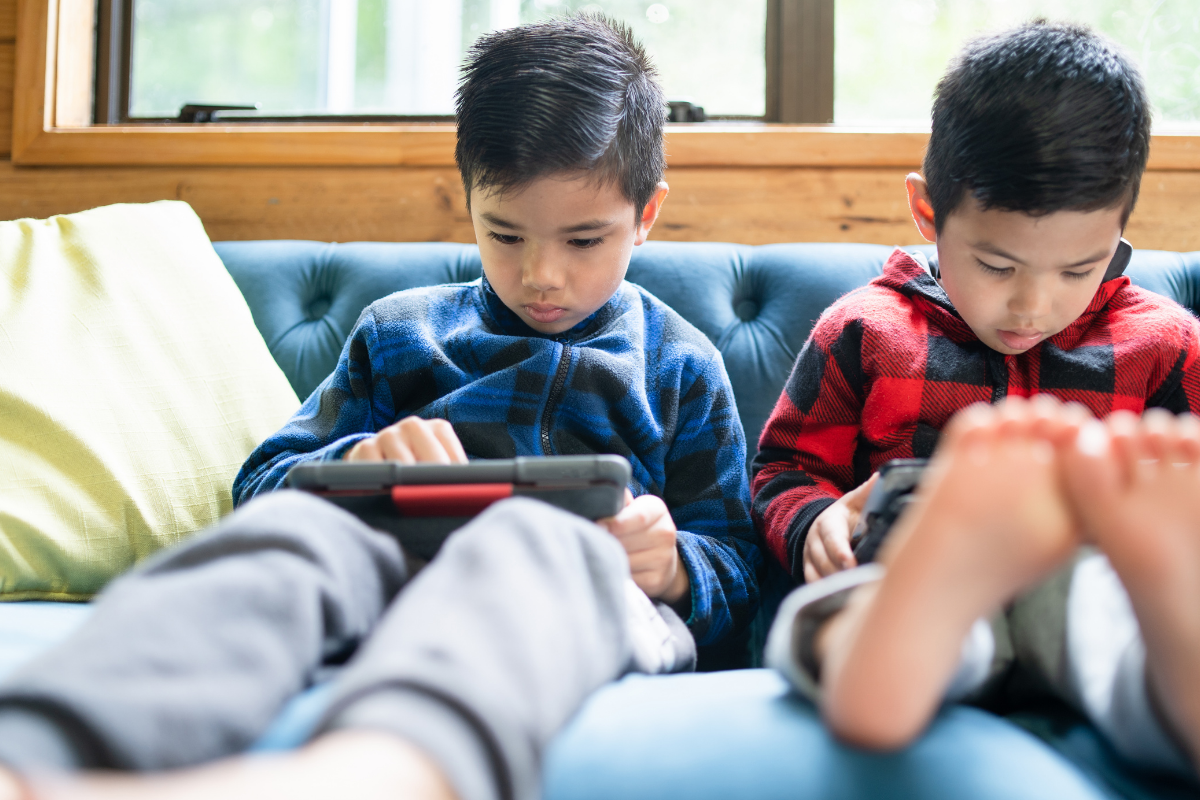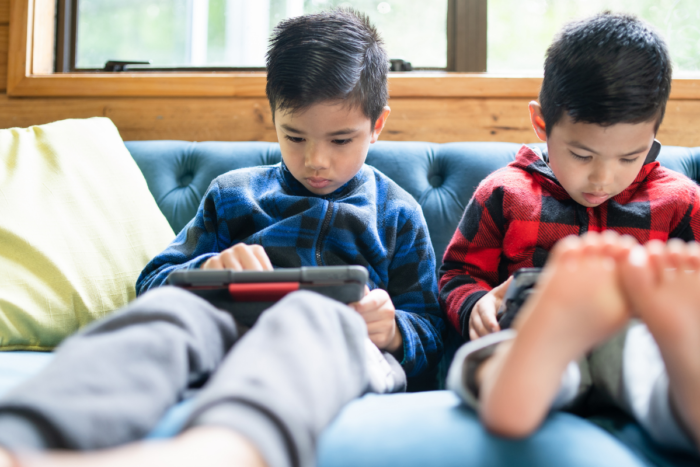
It’s Challenging to Stay Focused and Use Self-Control—But There Are Strategies that Work
This post was written in collaboration with the Mind in the Making team.
As life begins to return to pre-pandemic days, more and more demands seem thrown our way—more appointments, events, commutes, and things on our to-do list. With our busier schedules come lots of pressures. Sometimes it’s hard to stay focused—and in particular, to focus on what we can control. We all need strategies for managing stress, staying on task, and exercising self-control. As we practice these strategies, whether it’s setting clear priorities, trying to eliminate distractions, or creating a time for ourselves when we regroup, we can see how the skill of focus and self-control can truly help us manage life these days.
And we see how it can help our children. Learning this skill when children are young will not only help them in the future—when they are our age—but will help them now.
But if it’s a challenge for us, it can be a big challenge for children! Does this parent sound familiar?
“In one ear and out the other” is a good description of what happens when I ask my son to do something. I have to repeat myself dozens of times. If he completes his homework, he forgets to turn it in! And there is the constant call for “just five more minutes!” of screen time that turns into 10, 15, or even 45 minutes! Basically, every day is a struggle to get him to listen.
Other parents of young children can relate. They know how it feels to face these moments and have them lead to no-win arguments, tantrums, bad moods, late arrivals, and all-around frustration. Parents and educators can help reframe these challenging moments into learning opportunities using the consistent application of research-based methods that teach children effective ways to recognize, process, and express difficult emotions.
Focus is a critical life skill, but it can be hard for many children—and adults—to learn. Most parents and caregivers find that as children learn focus and self-control, there are fewer screen time battles, more homework assignments completed (and handed in!), easier outings, and calmer bedtimes. But the benefits actually go beyond these moments in daily life.

The Benefits of Focus and Self-Control
Research confirms that children who take greater responsibility for how to focus and utilize self-control are more likely to learn from educational experiences. This can lead to a long-term impact on their well-being, and even their economic prosperity. Once parents and educators understand the importance of these skills—both in their own lives and in the lives of their children—they can address everyday challenges in ways that yield long-term results.
Research You Can Use—Research That’s Different:
There is a lot of advice around on how to deal with tough moments. Ours is different:
- First, it’s based on real-life challenges. First Book and Mind in the Making worked together to survey 2,500 teachers and parents to identify the biggest challenges they face with their preschool and school-age children.
- Second, it’s built on the premise that life skills begin with adults and that we have a choice in how we manage challenges. When we adopt this approach, we aren’t just “firefighting” or coping, we are using these moments to help children grow and learn important skills for life.
- Third, it’s based on evidence. This approach uses an evidence-based process for dealing with difficult moments in ways that promote skills. It starts with figuring out what’s not working and helps us develop strategies that work.
- Finally, it is built around the best and most current science of children’s development and learning, curated for more than 20 years by the Mind in the Making team.
Here are four difficult situations we heard repeatedly from parents and caregivers. In each of them, children can learn to focus on what they CAN control to better build focus and self-control:
Common Focus & Self Control Scenarios
- Attention Seeking: My child acts out to get my attention. I get so frustrated. I feel like I can’t stop this.
- Gets Distracted Easily: How can I get my child to learn to finish what they start?
- Struggling with Homework: How can I get my child to understand that homework is necessary?
- Too Much Screen Time: My child is on a device, again! Sometimes it feels like they are addicted. How do I make sure they don’t spend too much time on screens? And how do I make sure they are choosing positive content?
If these sound familiar, you are not alone! The good news is that you can do this! You can handle challenging moments and get through them together with your child. And, if you try to see things in a new way, you can do even more—you can help your child develop critical life skills in the process!
Skill Building Solutions
These solutions are built around an “Opportunity Mindset.” This means choosing to see a challenge as a chance to grow. We know it’s not easy in a tough moment to see it as an opportunity, but the approach works at two levels. It helps you deal with the issue in the moment, and it helps your child build these critical skills over time. (It can also help you have a more positive parenting or caregiving experience!)
Helping children learn through this process allows them to develop skills that will deeply impact their connection with others and how they perceive the world. It has five steps:
- Take Your Child’s View: Stop and take a moment to think about what is happening from the child’s perspective. Be curious and ask about when they’re running into issues with homework or what feels overwhelming. If you begin by understanding them, you have a head start in finding a solution together.
- Share Reasons: Explain your point of view and let a child know why something is important so you can start finding a solution together.
- Provide Choices: Set limits and then give kids choices within those limits. Use phrases like, “Would you prefer…” or “When this is happening…” to ensure children feel in control of their own decisions. They need to be active in this process!
- Problem-Solve Together: Invite the child to make a plan with you for how to address the challenge. You can provide suggestions, too, but make sure to listen carefully to their ideas. Help them learn to become an active problem-solver by capturing all of their ideas. Together, you can choose one approach to try and later discuss how it worked. Have a few options to try in case you need them.
- Scaffold: Build on the ideas you’ve discussed together, especially the child’s ideas. Offer words of encouragement and support to positively reinforce their actions, efforts, and ideas. Challenge them to go deeper and apply their approach in new ways.
By using this process, you are helping children learn to solve problems for themselves rather than fixing things for them.
About the Skill Building Series
First Book is collaborating with Ellen Galinsky and Erin Ramsey of Mind in the Making at the Bezos Family Foundation to help educators and families with children ages 4-8 promote key life skills, such as self-control, communicating, and taking on challenges.
To help shape our work, First Book surveyed 2,500 of our Network members to identify the behavioral challenges they faced most frequently. Using the survey feedback and the science of learning and brain development, the Mind in the Making team created a series of skill-building opportunities tip sheets that we share with families and our network each week. These resources have been critical to supporting educators through the pandemic and its related stresses. Sign up to receive these free resources weekly in your inbox or via text message.
